Meals Served at Primary Schools in Tanzania Increase Attendance
Global Volunteers partners with Rise Against Hunger to provide fortified meals to preschool and primary school students, mothers and their babies, and pregnant women in the Reaching Children’s Potential program. Now that the meals are offered at the Ukwega and Makungu primary schools, teachers and staff report that students are much more active in classes. Read on for details on how better nutrition makes better students.
With the aim of promoting food security and nutrition in the Ukwega Ward, Global Volunteers and Rise Against Hunger (RAH) provide fortified meals to children and mothers in the Reaching Children’s Potential Program (RCP). Until recently, only the Fikano Primary School in Ipalamwa received the meals, but through an additional donation by Rise Against Hunger, the initiative was expanded to both the Ukwega and Makungu primary schools in July. Now, students at these two primary schools are also receiving meals before and after the school day. Between the three schools, a total of 1,408 children now receive two meals a day through the RCP program.
Global Volunteers hired two additional cooks to prepare the Rise Against Hunger meals for the new participating schools. Jali Kifyasi, who works at the Ukwega Primary School, and Zakina Nyaulingo, who works at Makungu Primary School, both attended these schools as children. Irene Festo Mtengela has been preparing the meals at Fikano Primary School, where she studied as a child.
The teachers happily report a surge in attendance since the meals arrived in July. “Since we started providing the meals before classes, the students arrive early, and most attend all the classes, staying afterwards to receive the afternoon meal as well,” they said. “Moreover, students are now more active than they used to be due to the boost in their daily nutrition.”

Fortified meals are cooked over a wood fire 
Cook Zakina Nyaulingo prepares Rise Against Hunger meals at Makungu Primary School 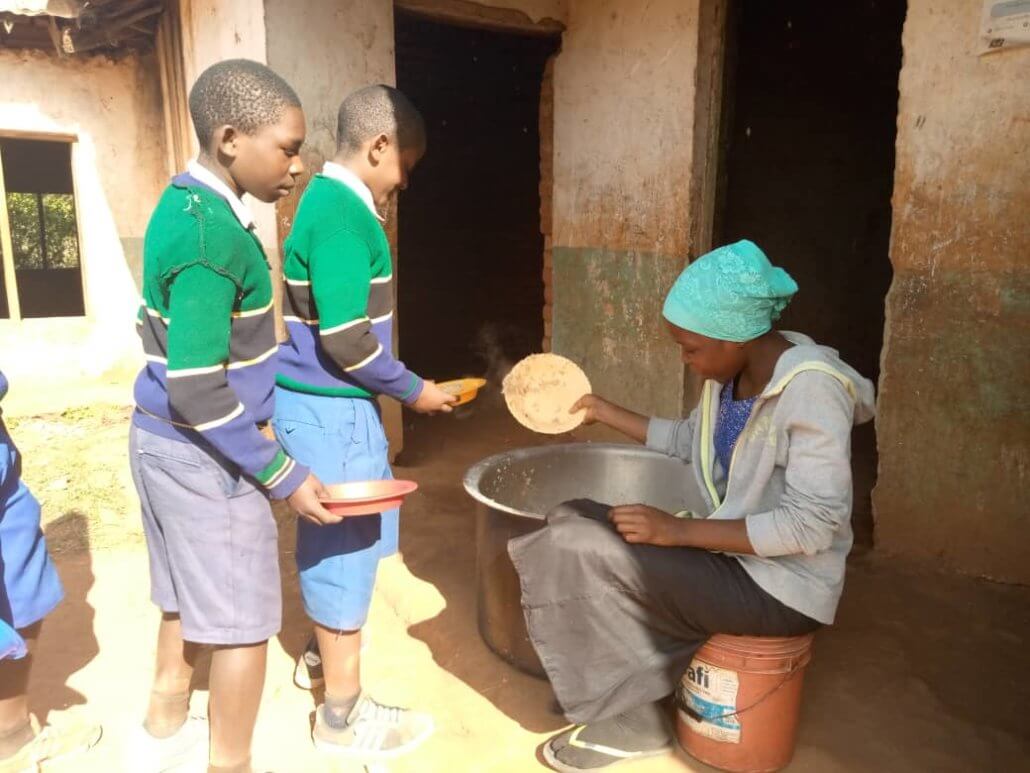
Children receive their first meal of the day at school 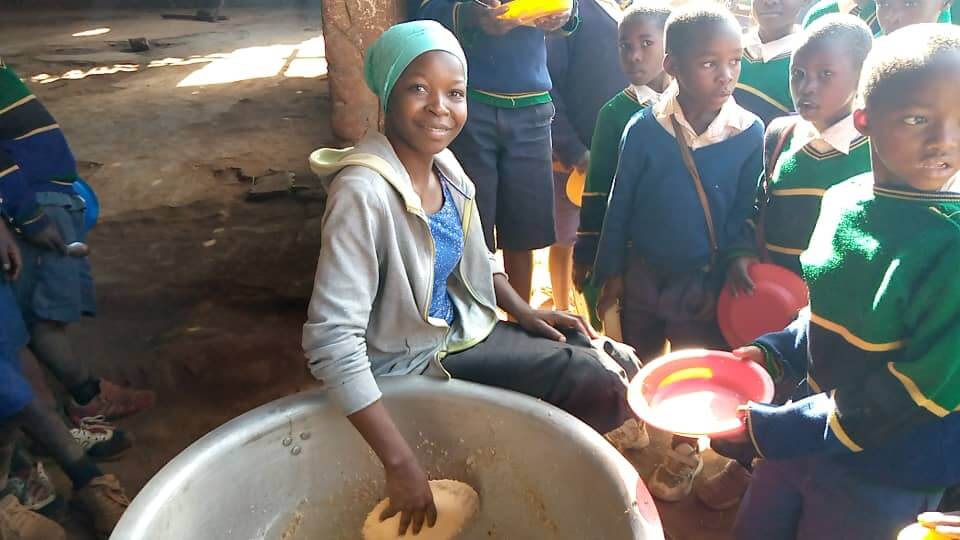
Cook Zakina serves children meals
“Most students attend all the class sessions in the day and stay afterwards to receive the afternoon meal as well. The teachers say that this is not normal because before children would not stay for all the sessions and they were coming late to school. Both teachers and students are very happy with the meals since students are now more active than they used to be due to the added nutritional boost!”
– Winnie Mshindo, Tanzania Team Leader
Blanka Mgani, a teacher at Makungu Primary School, was happy to provide details about the impact of the fortified meals:
What changes have you seen in the students’ reaction to the meals?
Most of them now are very active now compared to how it was before. For example, before when we got to the afternoon lessons, most of the students used to be very weak and some of them would decide to go home without attending the afternoon sessions. But in the last several weeks since the meal distribution began, the energy level in the afternoon is the same as in the morning. Students stay for all lessons because they know they will have a meal again after classes. I guess the fortified meal stays in the stomach for a longer time compared to the porridge that we were giving students. It is good that students have more energy at school because they can have a better ability to understand what they are taught. Energy always comes from the foods we eat, so it is good for the students to have food to give them the energy needed to help them in the learning process.
What do the students say about these added meals?
I had the chance to talk to a student in Standard 6 who said, “I feel very healthy and energetic when I eat the food. A few days ago I went to the dispensary and I was weighed. I have gained two kilos. I guess it might be because of the meals that we eat here at school. Also, nowadays, I understand the teachers more in the class compared to the previous period when we did not receive these meals. I think it is the same for my classmates because I’ve noticed we are all very active nowadays. I really like the meals, especially the taste, but also because it gives me strength all the time.”
“I really like the meals, especially the taste, but also because it gives me strength all the time.”
-Makungu Primary School student
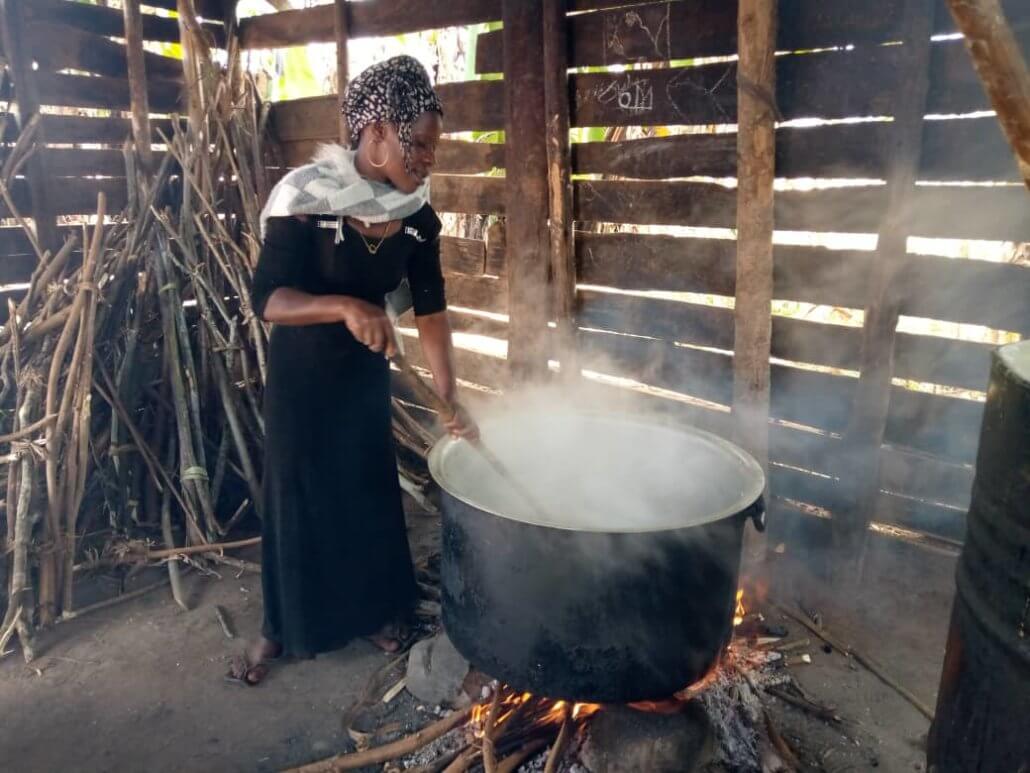
Cook Jali Kifyasi prepares Rise Against Hunger meals at Ukwega Primary School 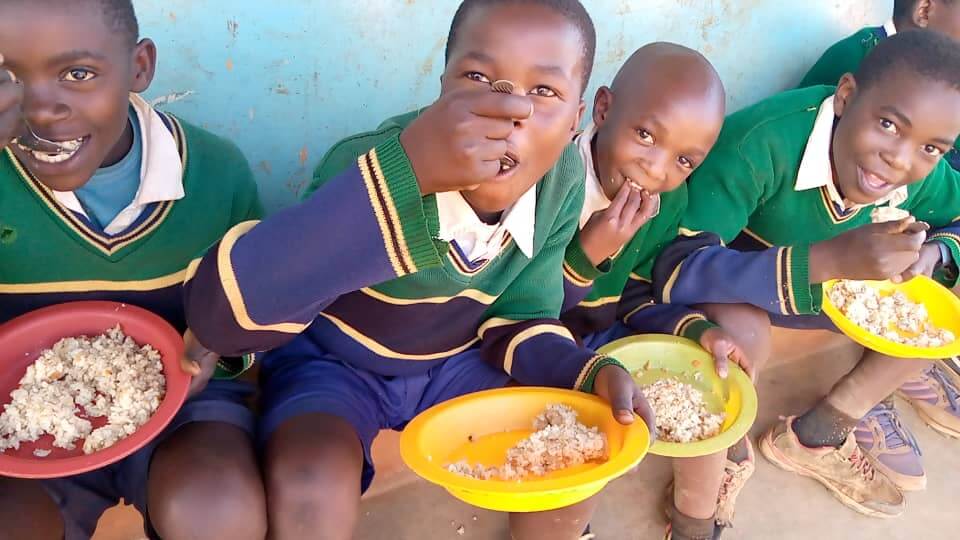
Children enjoy their fortified meals at school
What do you think will be the long-term benefit of improved student nutrition?
One of the benefits is improved performance in our school because students will have better understanding in class. They will be able to concentrate on what is taught. Later they will have very good performance and hopefully they will be able to reach their dreams of becoming who they want to be in the future.
Another benefit is that we will reduce crimes or stubborn students because most of them will be willing to come to school and learn. We will have a generation with great people, focused and bright people.
“But in the last several weeks since the meal distribution began, the energy level in the afternoon is the same as in the morning. Students stay for all lessons because they know they will have a meal again after classes. It is good that students have more energy at school because they can have a better ability to understand what they are taught.”
– Blanka Mgani, Makungu Primary School teacher
The connection between nutrition and students’ learning ability is clear. Micro-nutrients feed the brain and produce energy, which is needed for learning. Better food equals better learning. “If a child is not able to obtain good nutrition or good food, his/her ability to learn will be very low,” Blanka stressed. Poor nutrition early in life leads to stunting, which damages a child’s life-long learning potential. “So it is very important to help children/students have good nutrition for their better mental health and ability to learn. It’s important that students are getting the meals.”
More on nutrition and food security in the RCP Program:



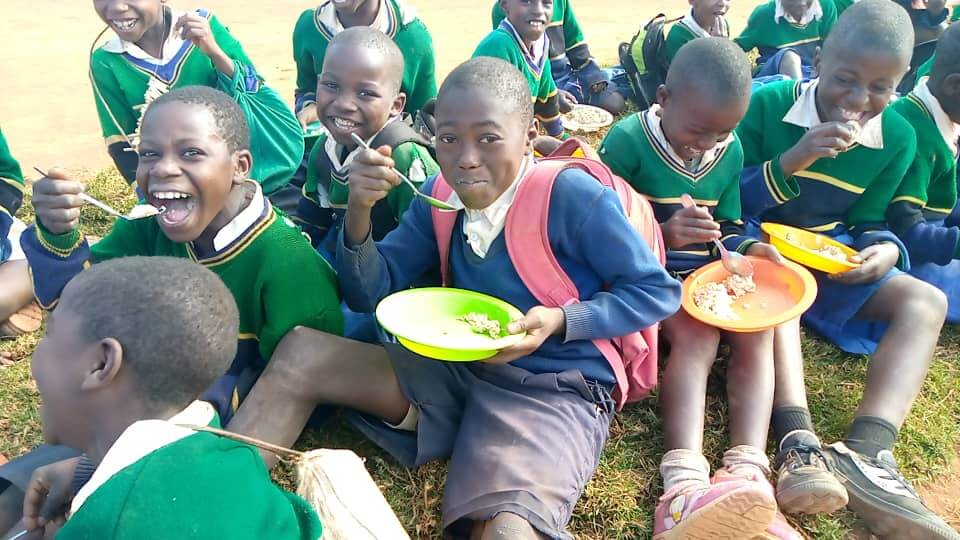
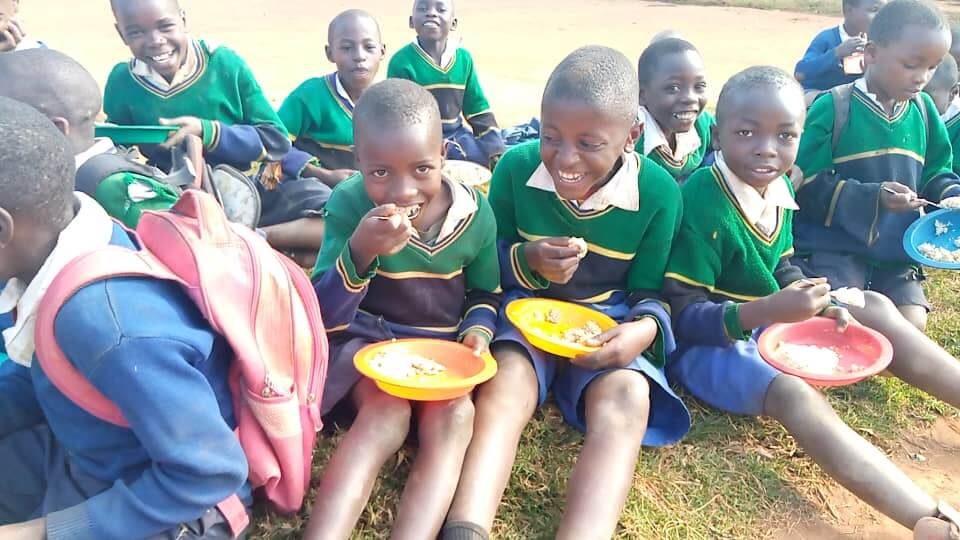


Leave a Reply
Want to join the discussion?Feel free to contribute!